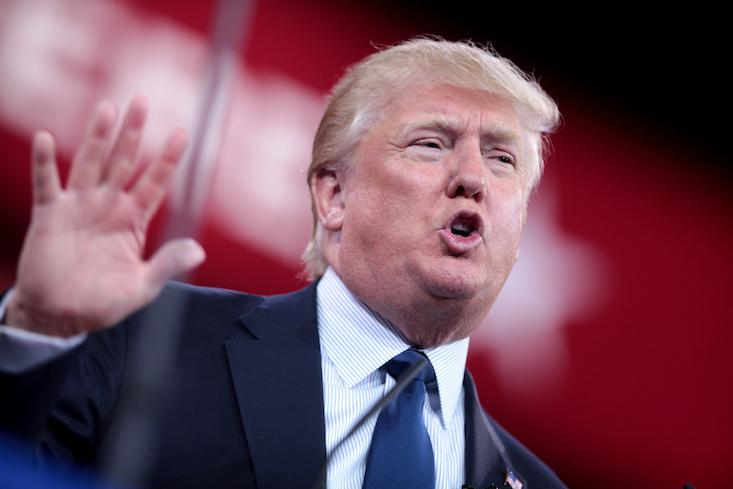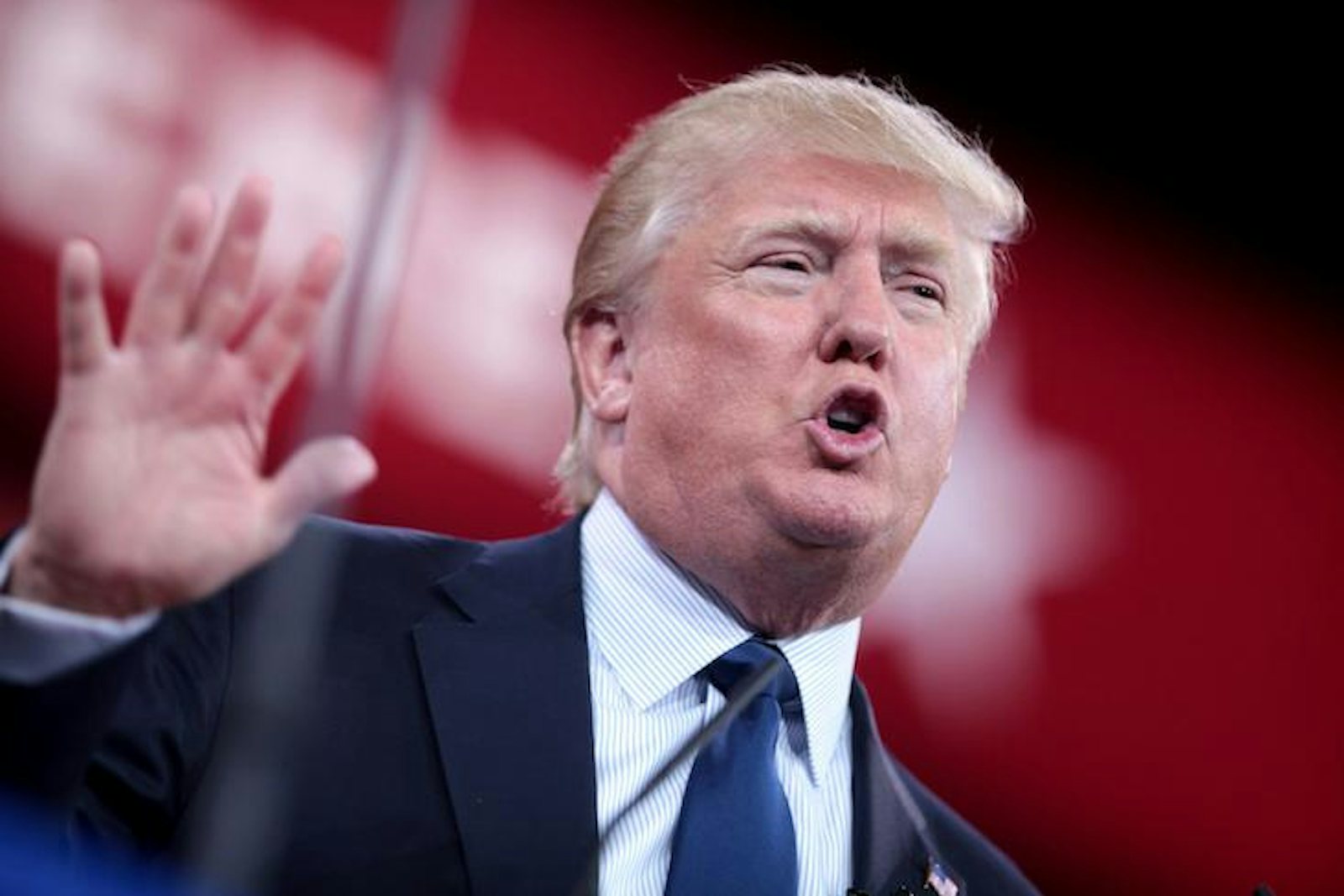
On the last weekend in April, I was surprised that a panel called “The Press and President Trump,” held at the Columbia Journalism School, didn’t broach the subject of mental illness. Just over a week earlier, at a psychiatry conference at Yale, a group of the attendees announced that Trump has a “dangerous mental illness.” “I can recognize dangerousness from a mile away,” James Gilligan, a professor at New York University, who’s worked with murderers and rapists, told the conference. “You don’t have to be an expert on dangerousness or spend 50 years studying it like I have in order to know how dangerous this man is.”
In the Q&A segment, I stepped up to the mic and mentioned this, and asked whether the health status of President Trump’s mind would become a more prominent story for journalists in the months ahead. One of the panelists, Carolyn Ryan, a senior editor at The New York Times, demurred. She noted that the paper had published some op-eds voicing this concern, but was wary of having reporters cover it. It could be “dangerous,” she said, to report on something so speculative. Another of the panelists, Matt Bai, a national correspondent for Yahoo! News, denounced the psychiatrists’ statements as “ideology masquerading as science.”
Trump isn’t the first presidential figure to receive psychiatric scrutiny. In 1964, the magazine Fact polled psychiatrists on whether Barry Goldwater was psychologically fit for the presidency. “Warped,” “impulsive,” and “paranoid schizophrenic” was how over 1,000 psychiatrists described him. Goldwater successfully sued for libel, and in 1973, in response, the American Psychiatric Association added the “Goldwater rule” to its ethics code. It forbade making diagnoses without an in-person examination and without obtaining permission to publicly discuss the results.
“Trump’s language borders on incapacity.”
“With regard to Trump, however, the rule has been broken repeatedly” by psychotherapists and psychiatrists, writes Evan Osnos in The New Yorker, in a story published the week following the panel. Titled “How Trump Could Get Fired,” the story demonstrates that journalistic coverage of Trump’s mental health doesn’t have to be a flimsy or biased exercise in discerning his thoughts. Over 50,000 mental-health physicians, Osnos notes, have signed a petition declaring Trump, based on copious observational data, is “too seriously mentally ill to perform the duties of president and should be removed” under the 25th Amendment to the Constitution—Section 4 states that a President can be removed if a congressionally appointed body judges him or her to be “unable to discharge the powers and duties of office.” John Gartner, the psychiatrist who started the petition, has said, “The psychiatric interview is hardly the gold standard, by the way. If you have massive amounts of information about a person’s behavior, that can be more accurate. And we have that. If the question is whether we can form a diagnosis from that information, I think it’s clear that we can. You don’t need to have an interview to know if someone has frequently lied or has violated the rights of others.”
Osnos writes that it’s not just psychiatrists who have serious grounds for worry:
Bruce Blair, a research scholar at the Program on Science and Global Security, at Princeton, told me that if Trump were an officer in the Air Force, with any connection to nuclear weapons, he would need to pass the Personnel Reliability Program, which includes thirty-seven questions about financial history, emotional volatility, and physical health. (Question No. 28: Do you often lose your temper?) “There’s no doubt in my mind that Trump would never pass muster,” Blair, who was a ballistic-missile launch-control officer in the Army, told me. “Any of us that had our hands anywhere near nuclear weapons had to pass the system. If you were having any arguments, or were in financial trouble, that was a problem. For all we know, Trump is on the brink of that, but the President is exempt from everything.”
Trump’s use, or misuse, of language has also been disturbing to experts of constitutional law. Take Laurence Tribe, a Harvard constitutional law professor. He said, according to Osnos, “Trump’s language borders on incapacity.” When the president was asked to explain his reversal on branding China a currency manipulator, Trump said, of President Xi Jinping, “No. 1, he’s not, since my time. You know, very specific formula. You would think it’s like generalities, it’s not. They have—they’ve actually—their currency’s gone up. So it’s a very, very specific formula.” This response could count as an example of “gross and pathological inattention or indifference to, or failure to understand” the mandatory duties of the president mentioned in the 25th Amendment, Tribe said.
To psycholinguist Julie Sedivy, it’s not Trump’s rambling language that’s worrisome, it’s his regular usage. “I think we have rarely had a president who uses such simple and simplifying language,” she recently told Nautilus in her Ingenious interview.
And why is that concerning? “There’s some interesting research that has looked at the correlation between simple language and the tendency of U.S. presidents to behave in authoritarian ways,” Sedivy said. “There is a predictive relationship that speeches that are expressed using very simple basic language tend to precede very authoritarian acts like the use of executive orders … That certainly plays out in the use of the heavy reliance on simple notions like amazing, sad, bad, unfair. These really strip away a lot of the complexities that are behind them. They reduce information into very gross impressions. The simplification of points of view, the simplification of the good and the bad, and even just the conveyance that, ‘We’re going to make good deals,’ for example. ‘It’s going to be great.’ That this is a simple problem just waiting for someone who has the right instincts to come along and solve this, is absolutely pervasive in Donald Trump’s language.”
And what is the downside of that kind of usage? “Well, I think the big downside is that it’s false. The world is a complex place. It’s not a simple environment. There are many interacting forces simultaneously that really elude simple explanations or simple solutions. One thing that I certainly have become very aware of through a couple of decades now of being a scientist is that for every simple, elegant explanation or theory we have come up with, we have discovered that the truth is actually not simple or elegant. It’s messy, noisy, complex.”
By reducing complexity to simplified language, Sedivy said, “we’re essentially lying about the nature of the world.”
Brian Gallagher is the editor of Facts So Romantic, the Nautilus blog. Follow him on Twitter @bsgallagher


























